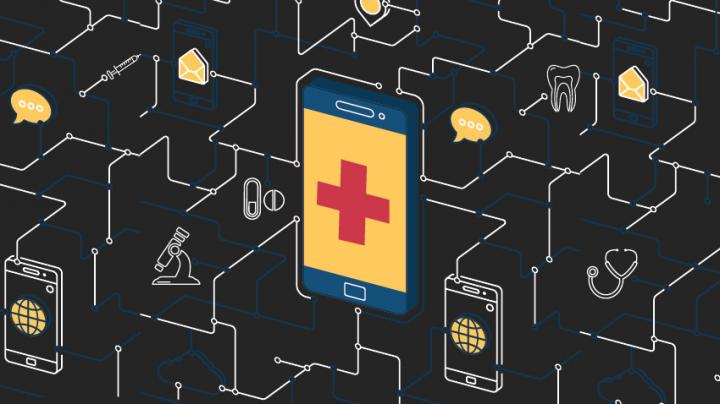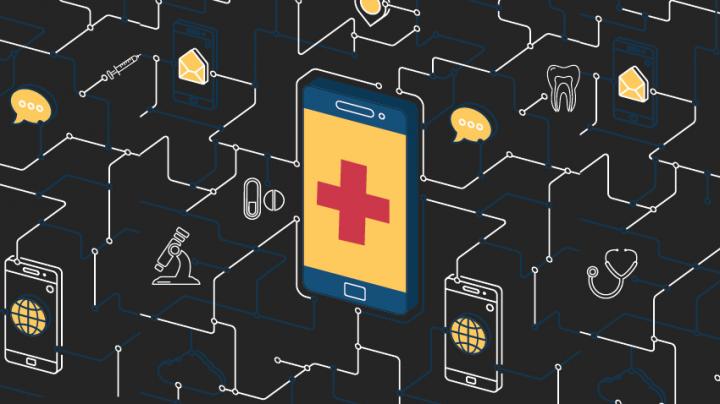
Credit: University of Michigan
ANN ARBOR, Mich. – From depression to weight loss, insomnia to cutting back on alcohol or cigarettes, the Internet teems with sites that promise to help people improve their health.
Which of these really help – with evidence from gold-standard studies to back up these claims? A new paper compiles only the best of the best: a list of over 40 sites backed by evidence from randomized controlled trials.
Compiled by a team at the University of Michigan Medical School, it includes sites that offer people help with reducing their use of alcohol, tobacco and marijuana; managing mental health issues; improving diet and physical activity; and addressing insomnia, chronic pain, cardiovascular risk and childhood health issues.
Published in the Journal of Medical Internet Research, the list includes sites that offer more than educational information that help people understand a condition.
Often, the programs are structured like courses, with stepwise, interactive modules based on psychological principles, and assignments to complete when the user is not on the internet. Some programs take weeks or months to complete. While several sites are free to the general public, others charge a fee.
"This list is just a start," says Mary Rogers, Ph.D., a research associate professor at U-M and member of the U-M Institute for Healthcare Policy and Innovation. "New trials are completed on an ongoing basis, so we suspect that there will be additional websites with effective interventions added to this list over time. It is important that procedures are in place so that people know where to find health information that is backed up by science."
She and her colleagues found that nearly 80 percent of effective online approaches to health-related self-help, shown to work in randomized controlled trials, aren't currently available to the public.
Rogers and her colleagues hope that their work will help the public in general, but also clinicians who want to steer their patients toward evidence-based online tools to help them between clinic visits.
About the study
The investigators started by doing a massive search for research papers in any language, and from any health field, that compiled the evidence from randomized controlled trials for online self-help approaches. They found 71 such papers, called meta-analyses, which looked at the results from 1,733 studies.
But through this review, the researchers found that only 21 percent of the online programs had a functioning website after the study was finished. Rogers and her colleagues note that often, the end of a grant to support a trial of an online program means the end of a research team's efforts to provide it. After the trial, ongoing support for web hosting and technical upgrades may not be available. So the authors call for efforts to host such sites after the trials are completed.
Many of the websites provide precautionary information to seek professional medical attention for health questions. Some sites also provide resources for health professionals.
For example, painACTION which was created using funds from the National Institutes of Health, offers resources for both patients and physicians, and was shown to help patients manage chronic pain. For every four people with chronic back pain who used it, one person experienced improvement compared to a control group. For every three people with migraines who used the site, one person experienced improvement compared to a control.
Rogers and her colleagues note that even though the sites on their list have evidence behind them, this does not guarantee a benefit for every single person who uses the site. But, compared to people who don't use the site, they do offer a greater likelihood of a benefit if the program is completed.
Most of the effective online health programs are available in English but some are available in Spanish, French, Portuguese, Dutch, German, Norwegian, Finnish, Swedish, or Mandarin Chinese. With 3.5 billion Internet users worldwide, future research is necessary to determine whether online programs work equally well in people with different social and cultural backgrounds.
Rogers adds, "If there is an internet program that can help someone improve their health and there's little extra cost involved in maintaining it, we should provide more avenues to keep these sites available. It could represent potentially great cost effectiveness globally. In addition, we have to do a better job of letting people know that there are evidence-based sites to help them."
###
Website locations for the effective self-help programs are listed at the Journal of Medical Internet Research here: http://www.jmir.org/article/downloadSuppFile/7111/47770
The full paper is at http://www.jmir.org/2017/3/e90/
In addition to Rogers, the research team includes Kelsey Lemmen, Rachel Kramer, Jason Mann and Vineet Chopra, M.D.
Media Contact
Kara Gavin
[email protected]
734-764-2220
@umichmedicine
http://www.med.umich.edu
############
Story Source: Materials provided by Scienmag





